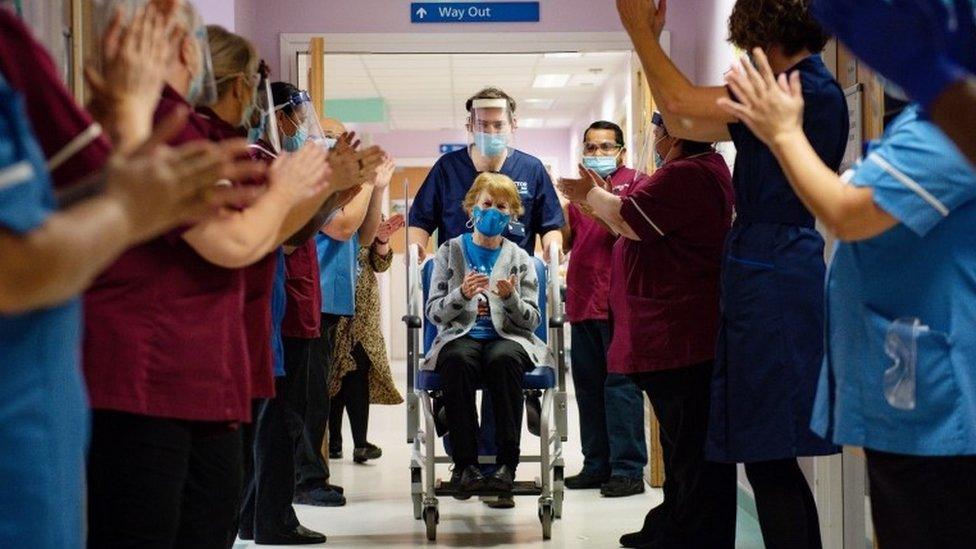Test and Trace: 'Tackling Covid got me a job'
- Published
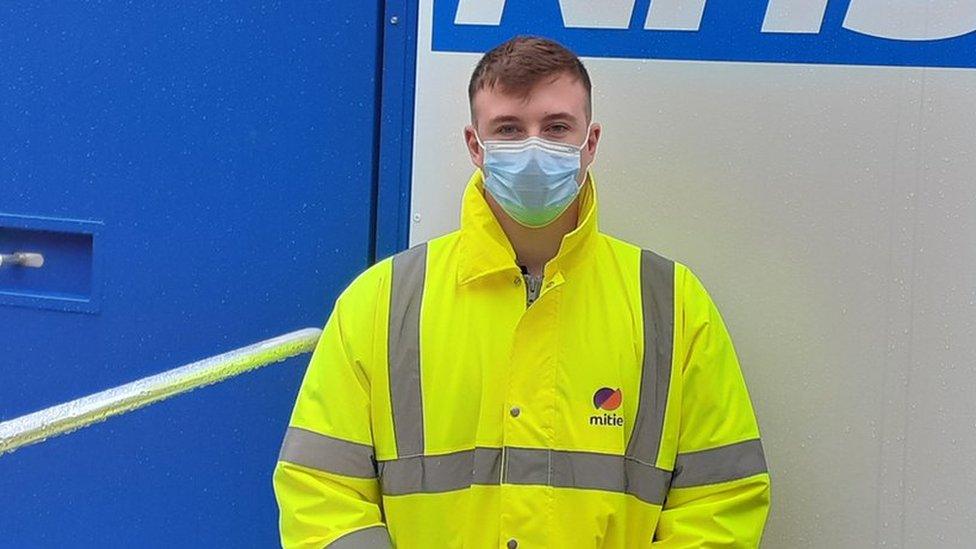
James helps people at a testing site
Whether it's to help the fight against coronavirus or just to get a bit of extra cash, more than 50,000 people work for NHS Test and Trace.
The system tests people for Covid-19 and traces their contacts following a positive result.
One of the workers is James, a 21-year-old geography student based at a testing site near his university in Dundee.
"The classes I have are online so I've got quite a bit of free time," he says.
James wasn't able to have his usual summer job working in a kitchen because of Covid.
His friends working at a different testing site told him about a new one opening near him in October.
"They were looking for people who could just, at the drop of a hat, come and work," he says.
"I thought 'it's helping the Covid effort, as well as getting me a job. Perfect'."
'It doesn't feel dangerous'
People who walk into the testing site are guided through a one-way system to a designated bay, where James explains how to use the swab tests in their nose and mouth.
"I like being on site, it's interesting, feels like you're doing something worthwhile," he says.
"It's quite a nice place to work, everyone's friendly, and there's no worries. Because there's constant cleaning it doesn't feel dangerous."
NHS Test and Trace is run by civil servants and private companies, which have been asked by the government to set up test sites, results labs and call centres for contact tracers.
More than 20% of the 1,400 civil servants working for Test and Trace are aged 25 or under.
James, who's a private contractor, says he's able to manage his time with university.
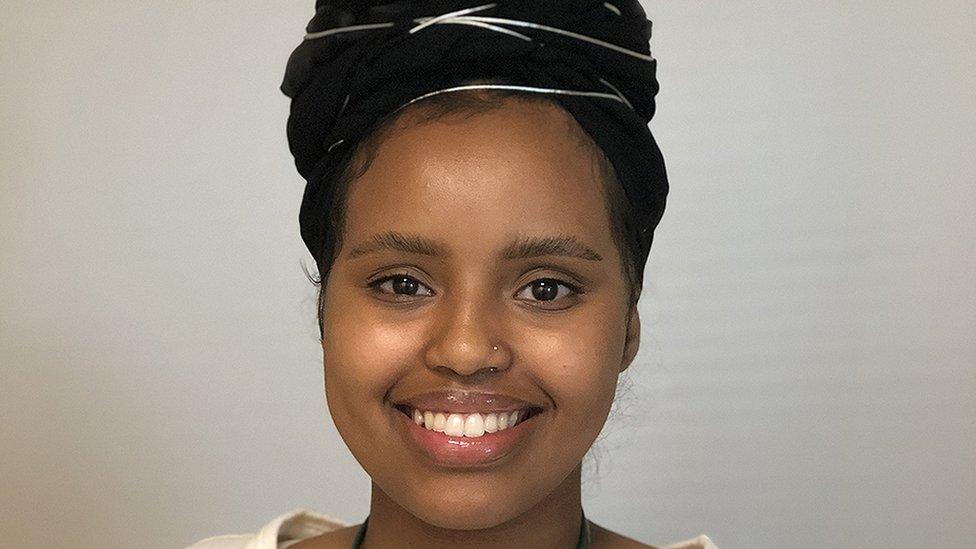
Halima applied to work at Milton Keynes Lighthouse Lab after one of her lecturers shared an advert online
When you take a coronavirus test, it's sent to a lab where operators like Halima work to find out if it's positive or negative.
"When I started, end of June, it was very busy," says the 22-year-old pharmaceutical student.
"Day shifts and evening shifts are very different in terms of the amount of samples that are coming in."
Halima works alongside virologists, wearing protective clothes.
It's her job to unpack the swab tests that have come from hospitals or testing sites, working in a special isolated cabinet.
She makes sure there's enough of a sample to be tested before it can go through a machine to check for coronavirus.
Halima applied to work at Milton Keynes Lighthouse Lab after one of her lecturers shared an advert online.
"I had to explain how I had prior experience in the lab that I'm already working in at university," she says.
She also had experience helping other students earlier in their degrees.
"I give them help with skills in terms of pipetting, and how to use the instruments."
She says working as a lab operator has helped her uni work.
"Now I'm able to apply knowledge that I have. It makes me more confident when I come back into university labs."
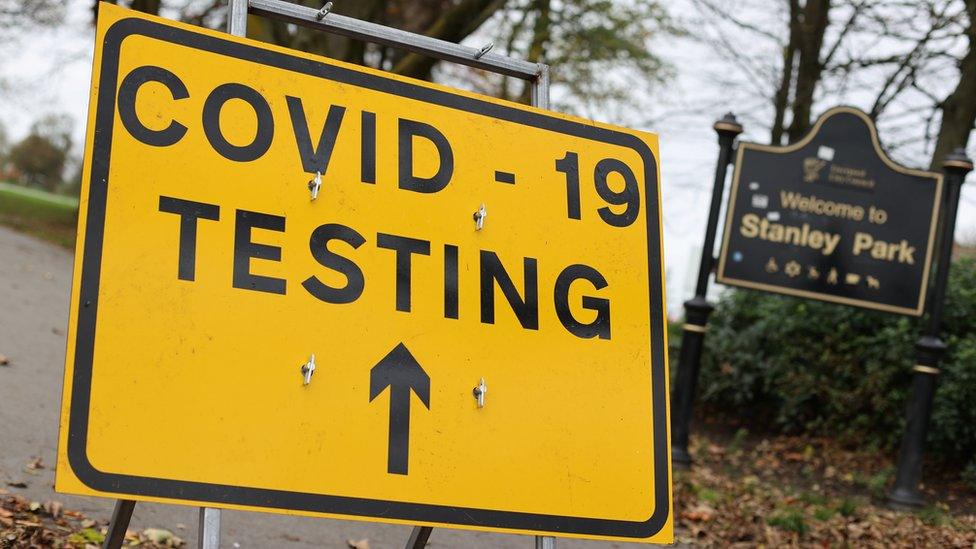
Covid testing sites have been set up around the UK
Six months ago, Prime Minister Boris Johnson said Test and Trace would be "world beating".
But there's been criticism of the service, especially the contact tracing part.
The government's scientific advisers say at least 80% of people contacted would need to isolate for it to work properly.
But government data from 19 to 25 November estimated that not all the infected people contacted revealed who they had been in touch with.
Of those that did, just over 70% of their contacts were reached. And Test and Trace thinks that only half of those contacted properly isolate.
When James sees negative headlines about the system he feels they are "quite unfair", in relation to his job at least.
"Everything has been slick and efficient, there's not been any disasters on site," he says.
'It does disturb my peace'
Halima says she understands some of the dissatisfaction.
"I have family that are frustrated, friends who are wondering."
She wants more done to help contact tracers communicate better with ethnic minority groups, such as the Somali community she's part of.
"If there's individuals who can lead, but also translate, in those groups, then it could potentially bridge the unknown."
The NHS Covid-19 app, which launched in September and tells you if you need to isolate, is available in 12 languages, including Somali, Urdu and Bengali.
But Halima says there are still communication barriers: "The reality of it is, we're out here helping each other."
She adds that "it does disturb my peace" seeing criticism of contact tracing in the news.
It's not all negative though.
James says "what's not to like about positive vaccine headlines?", welcoming the news of vaccines being approved in the UK.
He says even though it might mean his job eventually no longer exists, it "means things can maybe start going back to normal."


Follow Newsbeat on Instagram, external, Facebook, external, Twitter, external and YouTube, external.
- Published5 August 2021
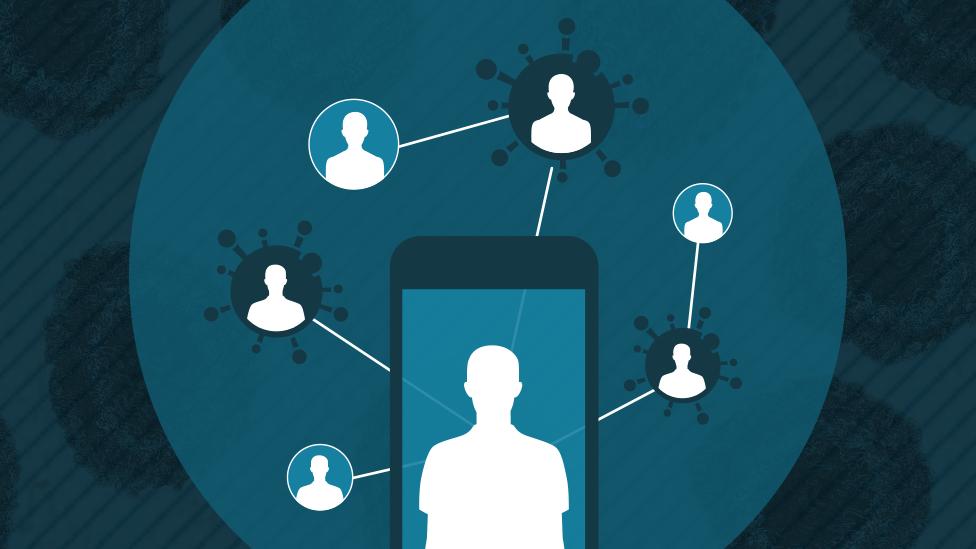
- Published8 December 2020
